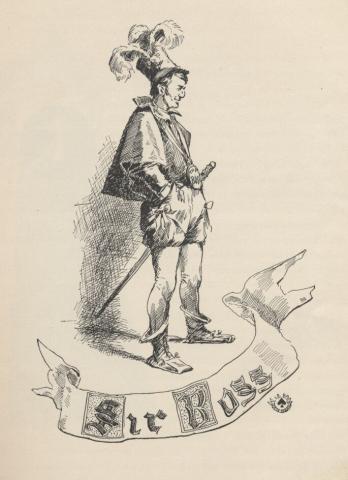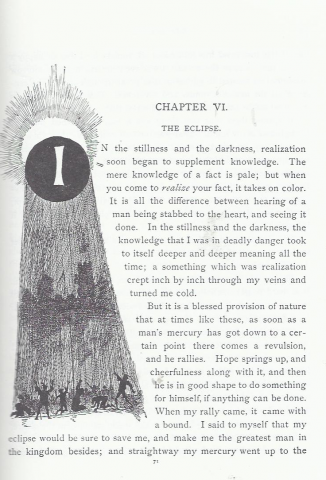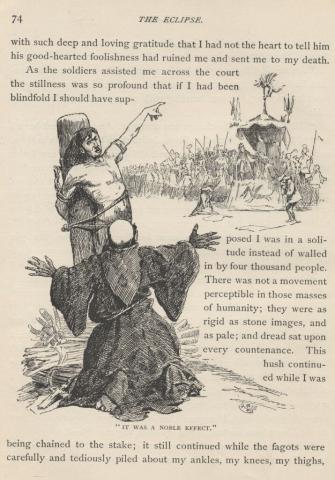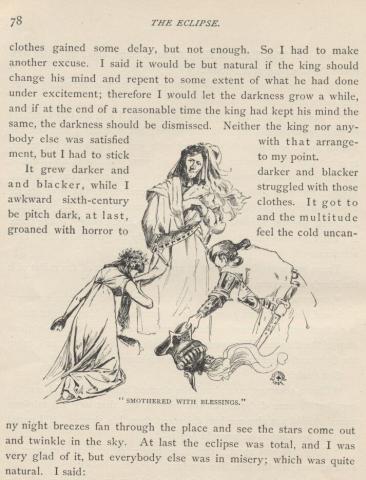I had always assumed that an eclipse of the sun did actually take place on the 21st of June 528 AD at precisely 12:03 in the afternoon. On editing this particular chapter I thought to actually look it up and discovered that no such eclipse occurred. I made some inquiries put could not place the blame on any erroneous entries in old almanacs or other references. It seems Mark Twain invented it himself. He is not the first to use this devise, though. He does give credit to "Columbus, or Cortez, or one of those people, ... as a saving trump once, on some savages, ..." in chapter 5.
Barbara Schmidt, a Mark Twain scholar who frequents the Mark Twain Forum offered this synopsis:
Date: 04/27/2013 08:56:21 AM
The use of the solar eclipse to prove a claim to supernatural power was not a new concept when Twain wrote CY. In the Iowa/California edition of the WORKS OF MARK TWAIN, edited by Bernard Stein, (p. 553) Stein points the reader to THE LIFE AND VOYAGES OF CHRISTOPHER COLUMBUS, Book 16, chapter 3 by Washington Irving. (Columbus exploited an eclipse to get natives to procure supplies for him.) Clemens owned a set of these books in the 1880s.
Louis J. Budd in MARK TWAIN: SOCIAL PHILOSPHER, p. 134 suggests H. Rider Haggard's KING SOLOMON'S MINES (1885) as an inspiration. Haggard's book got further publicity from an argument over whether an eclipse that its heroes exploited was astronomically on time.
Howard Baetzhold in MARK TWAIN AND JOHN BULL (P. 346-347) discusses the possible influence of THE PRAIRIE FLOWER (1849) by Emerson Bennett. In that book, the heroine "invokes" an eclipse to insure her safety. Baetzhold suggests Twain may have seen the stage production of THE PRAIRIE FLOWER during the 1870-71 season at the Bowery Theatre.
The eclipse concept, without regard to historical accuracy, was not a new plot device when Mark Twain wrote CY.
- Log in to post comments



